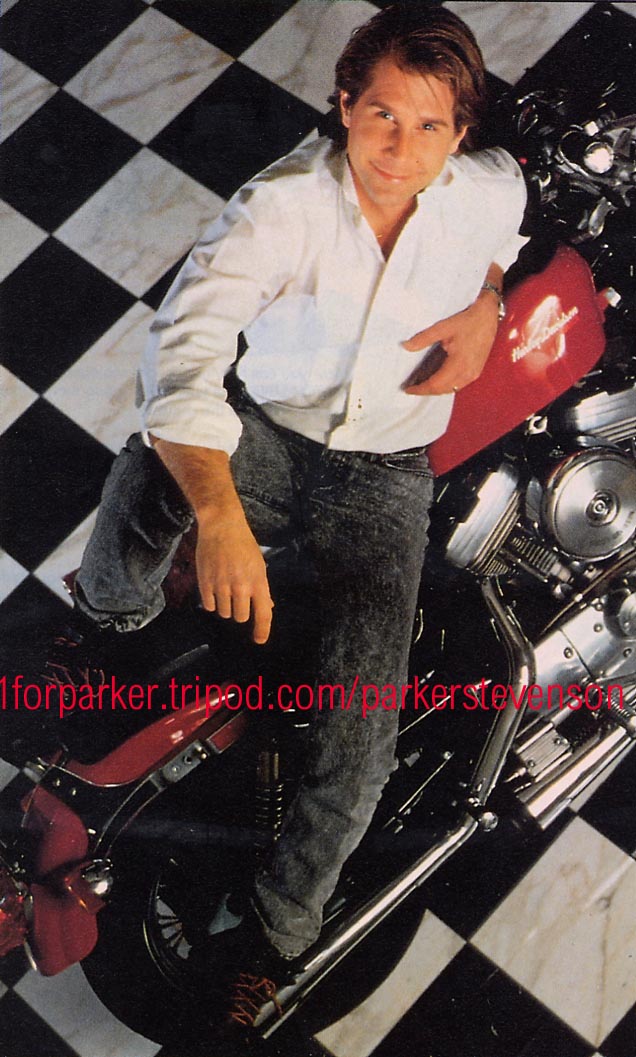|
On Acting "Good work is good work wherever it's done, in a play, a motion picture or television, and that includes commercials. The required levels of accomplishment differ but they're all related. They're all made with the same basic building blocks. I'm not drawing comparisons, but they all bravely carry and meet the challenges of characterization and performance.
"Intuition, imagination, energy. That's part of the start. When people ask me where I studied and I tell them that my classrooms were the soundstages of television, I watch their reactions. That being so, they seem to say, I just wasn't an actor after all." - from Drama-Logue, Aug. 27 - Sept. 2, 1987
Interview by Viola Hegyi Swisher
Stevenson: [Burt Reynolds] taught me the greatest lesson I ever learned about this business: If it seems like you're doing work when you're acting, then you're doing something wrong.
Playgirl: Do you think you're a good actor?
Stevenson: (Hesitantly) I'm a good workman, a good journeyman. I don't like using the word "actor" because it carries so much excess baggage. To me, an actor is someone who wears a cape and flamboyant clothes and who is revered by everyone around him - sort of like a magician. What I do is not some magical, mystical thing. I simply get up in the morning, get to work on time, say my lines, and do the best I can. - from "In the Swim" in Playgirl, October 1989
Interivew by Alan W. Petrucelli
On Fame and Celebrity "'The Hardy Boys' experience was one of the more unusual of my life. It's very exhilerating to be on a hit show - and disconcerting. There's a lot of attention and excitement but you're so busy trying to make the show not just work, but be really good, that you don't have a lot of time away from the studio. You get in before sunrise and you get out after sunset and you go home, eat and collapse. And while you're aware of the ratings and the articles and the merchandising. . . and the fact that the whole thing is being orchestrated for maximum impact. . . you aren't prepared for the response of the fans. It's only when you're in, let's say, the supermarket. Not some strange supermarket, but the one you've gone to for years, and suddenly, you're surrounded by strangers who want something from you. The thing is, they don't know what they want and you don't know what they want, unless it's an autograph, and you just sort of stand there grinning at one another." - from the article "Perfect Prep" in Soap Opera Digest
written by David Church (date unknown) On His Career

|
| Photo from Playgirl Interview |
Stevenson: I made a classic mistake - [after "The Hardy Boys" went off the air] I held out for something better. During the time I was starring on "The Hardy Boys," I was also watching other people's careers. I thought the next step for my career was to be a movie star. So I held out for something special, waiting to be the next John Travolta. I watched him go from "Welcome Back, Kotter" to "The Boy in the Plastic Bubble" to "Saturday Night Fever," and I thought 'If he could do it, so can I.' So for the two years or so after "The Hardy Boys" went off, I was selective. But I had selected myself right out of the business. I kept saying no to projects, and after a while, no one was interested in me. Offers stopped coming in. I was no longer hot.
Playgirl: Why did you keep turning down work?
Stevenson: (Annoyed) Because everyone wanted me to play the same kind of Hardy Boy character. I was being offered pretty boy, All-American boy-next-door roles, and I was sick of playing them. I was sick of playing eighteen-year-olds. I had played eighteen-year-olds for ten years of my life - and I wanted to do something different. So I gave up on Hollywood, and got a different kind of education by travelling throughout Europe and South America and racing cars. "The Hardy Boys" had burned me out, and I was recharging my batteries. But after I got bored with doing such wonderful things, I decided it was time to return to work. But it was tough because my visibility, shall we say, was at a low. - from "In the Swim" in Playgirl, October 1989 |

